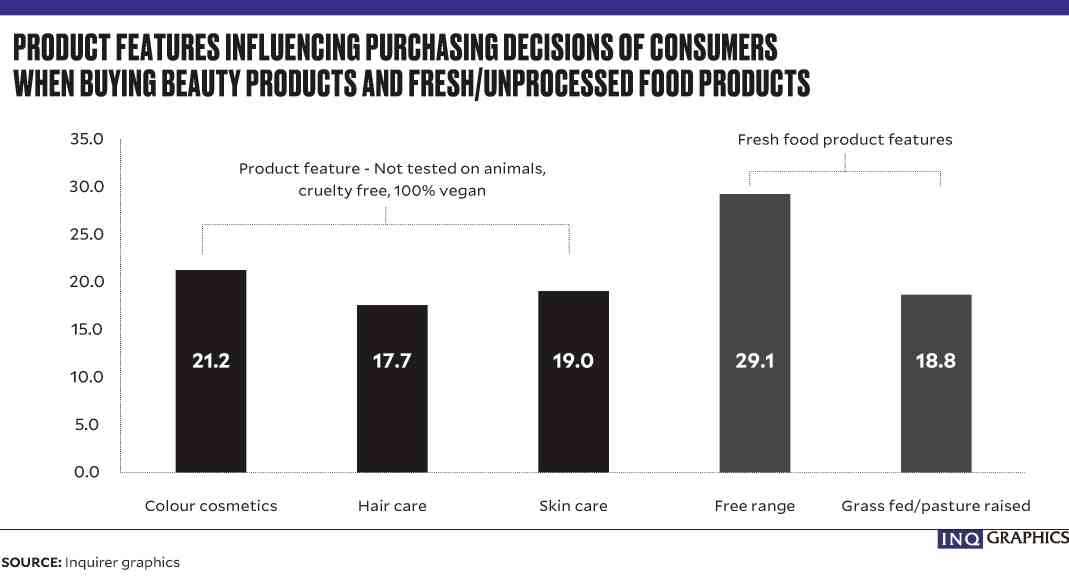The age agnostics, the conscious, the loners and the “digitally together”—brands, meet your 2019 consumers, according to the report “Top 10 Global Consumer Trends for 2019.”
Released annually by global market research company Euromonitor International, the report’s 2019 edition is authored by Euromonitor International’s head of lifestyles research Alison Angus and director of consumer trends Gina Westbrook. It provides insight into expected consumer behavior trends for the year, and how their values and priorities could affect businesses around the world.
The 2019 trends are:
Age agnostic: According to the report, this trend pertains to how people are now “ageless” and do not conform anymore to demographic expectations, especially since many have become more mindful of their health and are, therefore, living longer. It cites baby boomers (born between 1946-1964) as “the generation with the most disregard for age,” with the more affluent ones displaying millennial characteristics when it comes to owning the latest technology.
The spending power of older generations also cannot be denied; the report states that last year, those belonging to the 50 to 59 age bracket, earned almost 30 percent more than the average of those by other age groups. Brands, therefore, need to become more inclusive when it comes to their goods and services, focusing on older generations’ priorities such as enjoyment of life and spiritual beliefs.
Back to basics for status: This refers, mainly, to authenticity, and how consumers now are becoming less materialistic, and are steering clear of mass-produced and generic products. They find more value in unique and higher quality products, which also “convey a certain level of status.”
Conscious consumer: As the trend’s title implies, the conscious consumer is mindful about his or her purchasing decisions, and how these affect fellow humans, as well as animals and the environment. The report highlights people’s particular concern for animal welfare, which Euromonitor recommends companies invest in in order to add value to their businesses. The Philippines, in particular, is one of the 10 countries with the biggest increase in its vegetarian population from 2016 to 2017.
Digitally together: Connectivity and engagement are at the core of this trend. Consumers are now used to more lifelike interactions online, thanks to technology, with more developments on their way, there is much potential to create new ways to engage with each other remotely.
Everyone’s an expert: The root of this trend is information—and digital consumers’ need to absorb and share information. Thanks to the internet, consumers no longer rely on just one source to keep themselves informed about a certain brand; instead, word of mouth rules, especially on social media. Companies, therefore, need to rethink their brand marketing, as well as their product offerings, to stay competitive.
Finding my Jomo (joy of missing out): People are over Fomo (fear of missing out), and are instead being more intentional with their time and activities. Planned disconnections, the report states, provides consumers with more time to reflect and act freely so they can focus on what they really want to do. Such consumers, the report adds, need more personalized solutions to match their needs, and help with their mental well-being.
I can look after myself: This trend focuses on consumers who rely on “preventative, consumable measures against illnesses, unhappiness and discomfort … without having to consult professionals.” They seek solutions that simplify their lives, such as the app Spoon Guru UK, which allows consumers to create personalized dietary profiles and recommends restaurants and recipes based on their profiles.
I want a plastic-free world: In the wake of news about microplastics, the “Great Pacific Garbage Patch,” and marine life choking on plastic waste, consumers are now curbing their use of plastic, and are more willing to spend on eco-friendly and recyclable products. It’s a trend, which, according to the report, will gain more momentum this 2019.
I want it now!: “Efficiency-driven lifestyles” are what consumers today want, as they struggle to manage their busy lives. They expect companies to deliver their goods and services as quickly and as simply as possible, states the report. It’s a trend that will be driven mostly by mobile app technology, says the report.
Loner living: Finally, the report states that the number of people living alone is on the rise, and that single-person households are expected to outpace the growth of all other household sizes. Baby boomers, particularly, will be responsible for most of this growth; at the same time, younger generations are also enjoying their independence and are not rushing into marriage. What companies should take note of, states the report, is that solo-living consumers are more budget-conscious, and seek experiences that replicate companionship (like adopting a pet).
These trends, the report concludes, fall under a unifying theme: They’re all about consumers taking control of their lives and asserting themselves.
“The world feels out of control. There is much political upheaval in developed markets, and fast, totally unprecedented change in developing economies,” the report reads. “We need to feel just a bit more powerful amidst the chaos.”
